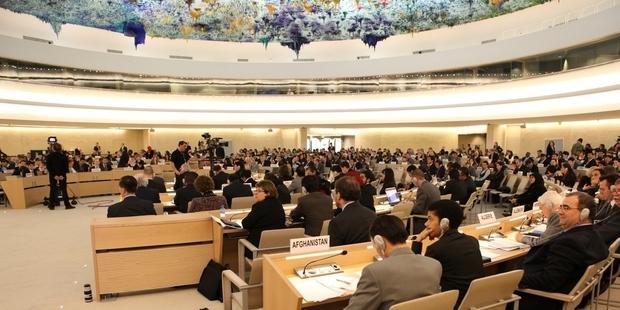- 15 Jan 2014
- [International Secretariat]
- Region: MALAYSIA
- Topic:
Comango had criticized Malaysia's human rights record at the UN Human Rights Council.(C)Eric Bridiers/U.S
Today’s attempt by Malaysia’s Ministry of Home Affairs to ban the country’s leading coalition of human rights NGOs is a disturbing assault on the rights to freedom of expression and association, Amnesty International said.
The Ministry alleged that the majority of the 54 groups that make up the Coalition of Malaysian NGOs (COMANGO) are “un-Islamic”, lack official registration, and are therefore prohibited.
“Outlawing COMANGO is a deeply disturbing action aimed at silencing important critical voices that have advocated on the world stage for Malaysia to uphold international human rights law and standards,” said Hazel Galang-Folli, Malaysia researcher at Amnesty International.
COMANGO responded to the move by saying that, as a coalition of different NGOs rather than a single organization, it is not bound by the requirement to register under Malaysia’s Societies Act, which dates back to 1966.
The coalition raised the ire of the Malaysian authorities in March 2013 when it submitted a report to the United Nations, ahead of Malaysia being scrutinized under the Universal Periodic Review (UPR) session late last year.
Its report pointed to a wide range of areas where the Malaysian authorities need to improve their human rights record – not only on freedom of religion and the discrimination of lesbian, gay, bisexual, transgender and intersex (LGBTI) individuals, but also on the rights to freedom of expression, assembly and association. Amnesty International and other non-governmental organizations highlighted similar concerns in recommendations to the UN Human Rights Council last year ahead of its UPR of Malaysia.
“This move seems less about enforcing registration requirements and more about removing a thorn in the side of the authorities. Labelling human rights groups ‘illegal’ only adds to an already long list of human rights violations that Malaysia’s authorities need to remedy, as the UN’s Universal Periodic Review process again highlighted last year,” said Galang-Folli.
Freedom of religion was one of the key issues discussed during Malaysia’s UPR review, with several states making comments and recommendations. A representative of the Malaysian government defended the religious restrictions, saying that they were in the interest of public order.
Although Malaysians adhere to a variety of religious faiths, the Constitution prescribes Islam – followed by more than 60 per cent of the population – as the official religion. But the country’s legal system has its roots in Common Law, and Shari’a law has traditionally only applied to practicing Muslims.
“It is concerning to see the Malaysian authorities increasingly taking their cue from hard-line religious groups and others seeking to silence those who espouse views that differ from their own agenda,” said Galang-Folli.
8 January 2014
AMNESTY INTERNATIONAL PRESS RELEASE
Related Actions
- 22 Oct 2020
CHARGES AGAINST UNION ACTIVISTS WILL NOT PROCEED [Suspended] - 4 Mar 2020
INDIGENOUS LAND RIGHTS AT RISK - 28 Dec 2018
SYRIAN REFUGEE GRANTED ASYLUM IN CANADA [Suspended] - 15 Sep 2018
ALL 14 CHARGES AGAINST POLITICAL ACTIVIST DROPPED [Suspended] - 1 Dec 2017
INVESTIGATIONS INTO HUMAN RIGHTS DEFENDER CLOSED [Suspended]
Related Newses
- 19 Oct 2018 [International Secretariat]
MALAYSIA: Parliament must consign death penalty to the history books - 23 May 2018 [International Secretariat]
MALAYSIA: Release of prisoner of conscience Anwar Ibrahim a momentous day for human rights - 14 May 2018 [International Secretariat]
MALAYSIA: Next government must prioritize human rights - 2 Apr 2018 [International Secretariat]
MALAYSIA: “Fake news” bill hastily approved amid outcry - 30 Mar 2018 [International Secretariat]
MALAYSIA: ‘Fake news’ bill must be scrapped





